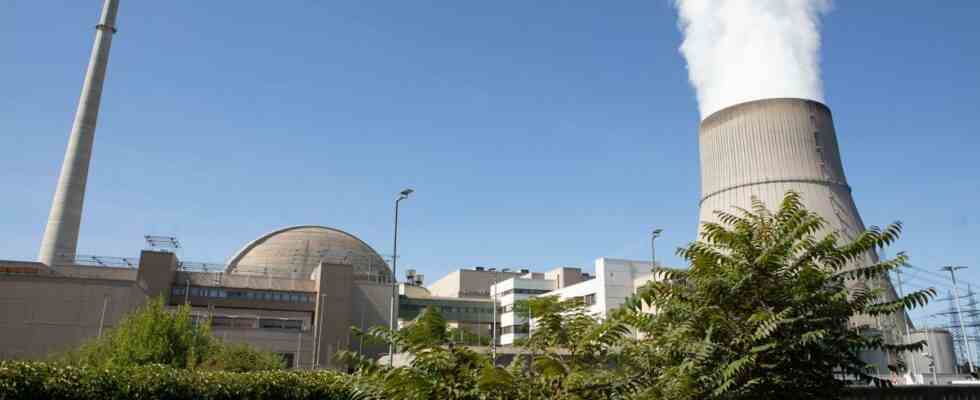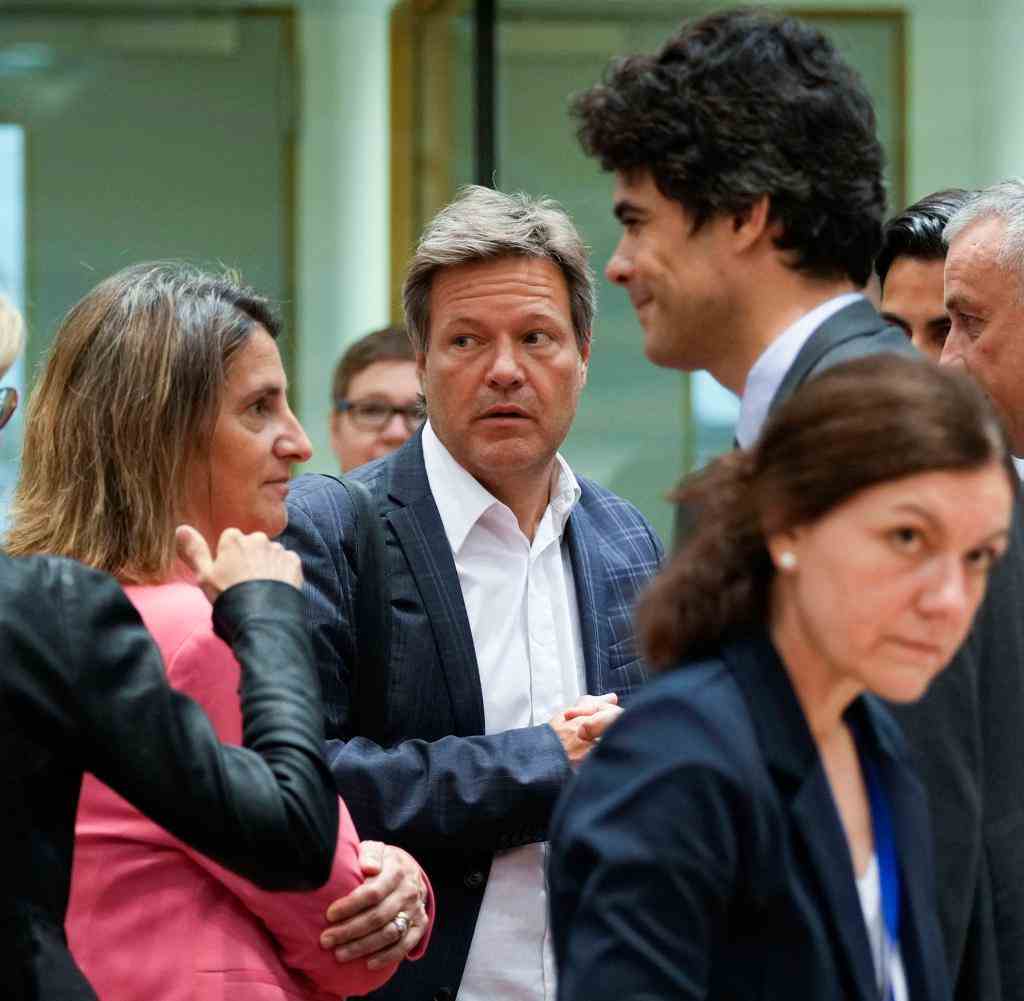“If Germany wants to save gas, let it keep its nuclear power plants running”
“The federal government is very afraid that we will get a yellow vest problem”
“As long as wind power cannot replace everything, we have to rely on everything that is available,” emphasizes WELT chief commentator Jacques Schuster. He explains the current developments in the energy crisis and says that one could also think about a “pipeline from Turin to Bavaria”.
Anger at Germany is growing within the EU. Above all, the fact that the federal government is sticking to shutting down the last nuclear power plants at the end of the year is met with incomprehension.
AIn view of the gas crisis, dissatisfaction with the German government’s decision to phase out nuclear power is growing in other EU countries. According to research by the German Press Agency, several countries are now urging the remaining three nuclear power plants not to be shut down at the end of the year as planned. In addition, it is required to check whether the three most recently disconnected reactors can be restarted.
From the point of view of countries such as Hungary, Romania, Slovakia and France, the continued operation of German nuclear power plants could make a significant contribution to saving gas, since around 15 percent of Germany’s electricity was still generated by gas-fired power plants. If Russia cuts off all gas supplies to the EU, more reserves would be available for domestic and industrial heating.
“If Germany wants to save gas, then please let its nuclear power plants continue to run – or the three that were shut down last year, they could go back on the grid,” criticized Slovakia’s Economics Minister Richard Sulík on Tuesday on the sidelines of the EU Consultations in Brussels. According to him, 15 billion cubic meters of gas could be saved by continuing to operate the six nuclear power plants. This is half of the amount that the EU wants to save with its gas savings plan, he said.
Hungarian Prime Minister Viktor Orban had made a similar statement shortly before. He explicitly criticized the EU Commission for not forcing Germany to continue operating the nuclear power plants. Although the nuclear power plants produce cheap energy, the Brussels authorities allow them to be closed, Orban said last Saturday. If the energy then runs out, they will instead try to take Hungary’s stored gas away.
Orban was referring to the EU emergency plan for the gas crisis, which was decided on Tuesday against Hungary’s will. It provides for a voluntary reduction in national consumption by 15 percent between August 1, 2022 and March 31, 2023. In addition, the possibility should be created to trigger a Union alarm in the event of far-reaching supply bottlenecks and to set binding savings targets. States that no longer have gas to supply households, for example, should then be supplied by countries with remaining supplies.
There are currently three nuclear power plants still connected to the grid in Germany: Emsland in Lower Saxony, Isar 2 in Bavaria and Neckarwestheim 2 in Baden-Württemberg. According to current law, they actually have to be switched off by December 31, 2022 at the latest. In the federal government, the Greens are strictly against a far-reaching extension of the term. The only option seen is to operate the nuclear power plants that are still in operation a little longer with the remaining fuel elements. In particular, the Isar 2 nuclear power plant could probably continue to run until at least May next year.
The Greens are currently ruling out the purchase of new fuel elements, and the continued operation of Isar 2 should only be made possible if this could be useful for securing the stability of the power grid. Federal Economics Minister Robert Habeck (Greens) recently repeatedly emphasized that full utilization of the remaining fuel elements in the three nuclear power plants would only enable a reduction in German gas consumption of up to 0.7 percent. SPD government politicians argue similarly, while the FDP is in favor of extending the term.
The three nuclear power plants that experts in Germany say could be put back into operation are the Brokdorf (Schleswig-Holstein), Grohnde (Lower Saxony) and Gundremmingen C (Bavaria) nuclear power plants. The managing director of the TÜV association, Joachim Bühler, recently told the “Bild” newspaper that the restart of the reactors that were shut down in 2021 would be “not a question of years, but rather of a few months or weeks” – and above all a question of political will . “We are convinced that the three power plants are in a safe condition that would make it possible to connect them to the grid again,” said Bühler.
Von der Leyen: “Energy mix in the competence of the EU member states”
EU Commission President Ursula von der Leyen recently rejected the accusation of not getting involved in the nuclear debate. “The energy mix is the responsibility of the EU member states,” she said in a dpa interview. However, she observes that many EU members assume that nuclear power will be needed as a bridging technology. For example, the Belgian government decided in March to prepare a postponement of the phase-out of nuclear power, which was actually planned for the end of 2025. It is now scheduled to take place ten years later.
In the interview, von der Leyen also made it clear why Germany’s request for solidarity in saving gas will probably also be heard if the nuclear phase-out is maintained. “Even member states that hardly purchase Russian gas cannot escape the consequences of a possible delivery stop in our internal market,” she said. The economies are closely intertwined. A gas crisis would affect every Member State in one form or another.


